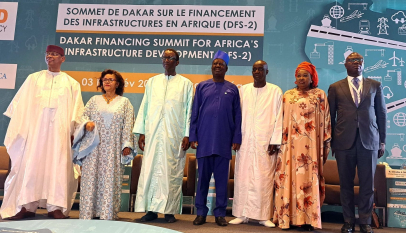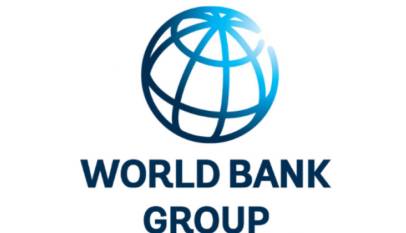INTERVIEW:“How non-state actors could help governments end hunger in Africa”- Kop’ep Dabugat
Kop’ep Dabugat is the coordinator of the Comprehensive Africa Agriculture Development Programme’s Non-State Actors Coalition which was launched in 2015 to unite relevant farmers’ groups, civil society organizations, and private sector actors towards enhanced agricultural productivity in Africa.

How has it been steering over the affairs of the CAADP’s Non-State Actors Coalition?
At this stage the coalition is still quite new, it is just about 2 years old now so what we are focusing on at the moment is laying a solid foundation for the organization, and of course, my resumption of office as the Coordinator of the CNC coincides with the takeoff of the coalition’s secretariat. So, everything is still very new in terms of laying down the institutional structure for the organization.
In addition to the institutional aspects, developing the types of programmes that need to be carried out to ensure maximum impact of non-state actors in the agricultural transformation agenda of our continent as well as reaching out to relevant stakeholders across Africa to strengthen partnerships is very important.
By partnerships, I mean all the agencies that are relevant to the CAADP process, primarily the African Union, the NEPAD agency, and the regional economic communities, and of course other numerous partners that are supporting the process.
This forms the major focus of what we are currently doing now. In terms of programs, we are trying to add value to what is currently being done at the continental and national levels to enable the smooth and efficient implementation of CAADP.
Hundreds of millions of Africans are either malnourished or under-nourished; as Non State Actors what mechanism do you have for ending hunger and achieving food security on the continent?
First of all, we need make the issue clear; the role of non-state actors is more of a complimentary one, in terms of administering social development. The primary responsibility of addressing social development lies with the government and we try to make sure we complement what governments are doing by enhancing the impact of the policies of governments in Africa, beginning from where the government implementation stops.
By looking at it from the perspective of where the implementation of governments’ policies stop, therefore, we come up with programs that within our own limited resources as non-state actors, we will help bring about development in the agricultural sector. So, to respond to your question of a mechanism of ending hunger and achieving food security in Africa, I will say that our own mechanism is a complimentary one.
We are trying to make sure that governments implement policies and commitments they have entered into under local and international laws; to have the policies implemented to the later which will guarantee the impact you want to see.
We also enlighten communities on how to use their acquired skills and capacity to try to cope with situations of either hunger or malnutrition, as well as to engage in the policy process. We also engage the governments on the right kinds of policies that are desirable to their citizens and for the best interest of the society, while also facilitating the access of our members to police spaces and processes, global, continental and national.
Agricultural production in most parts of Africa is still characterized by crude farming systems; what plans do you have for innovative farming techniques and mechanized agriculture which will obviously improve yield on the continent?
Again, I will refer to the fact that it is the primary responsibility of governments, we as non-state actors are watchdogs as well as active participants and partners in the development process as the CAADP frameworks envisages. As you know, the CAADP framework is Africa’s flagship program for agricultural development; it was developed by Africans and is being implemented by Africans, and which is based on the fundamental characteristics of prevailing agricultural systems and realities in Africa, which is largely about small scale family farming methods.
So, CAADP is built in such a way that it tries to pull together all the advantages that are available for agricultural development, all the methods that have been tried and found to be successful across the world, and adapt them here in Africa. The key word here is “adapt”! So, we are looking towards helping to link up with all those innovative ideas that are out there, to bring them to the non-state actors so they can use them in improving the methods that they already have.
In terms of technology, we of course try to create awareness about the technologies that are available and which small holder farmers can access and utilize; technologies like modern farming tools and implements and machineries, as well as innovations in terms of high yielding varieties of seed and critical knowledge about climate, soil, and farming methods, opportunities for financing, trainings and capacity building on how to grow different varieties of crops etc.
But the bottom lines with all if these are that they have to fit in with the system of agriculture on the continent, which is basically built around small-holder farming
How critical are the roles of farmers’ groups, civil society organizations, and private sector actors in achieving enhanced agricultural productivity and food security in Africa?
The CAADP framework is a multi-stakeholder framework which recognizes the fact that every actor has a role to play in the process; everyone has something to bring to the table. So, the non-state actors have a role to play and they can only do that when they stand as a formidable front.
As such, the coalition tries to bring all these actors together i.e private sector, farmers and civil society, so that they can have that critical mass with which they can use to bargain and present compelling demands to governments and other actors in the CAADP process in order to ensure their voices are heard and taken in to account in the policy process.
So, yes they have a huge role to play beyond being onlookers, rather as participants in defining the agenda, in deciding what direction implementation should go, in monitoring how implementation is proceeding; whether wrong or right and in ensuring that accountability is maintained in the process of administering policies aimed at agricultural development.













